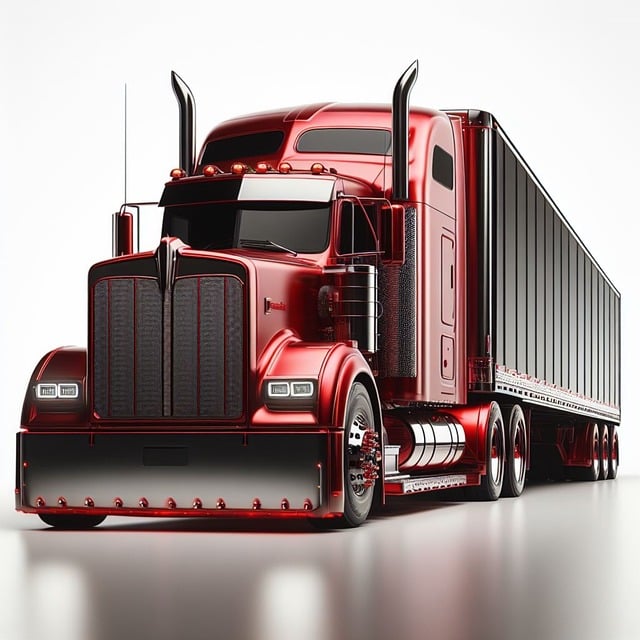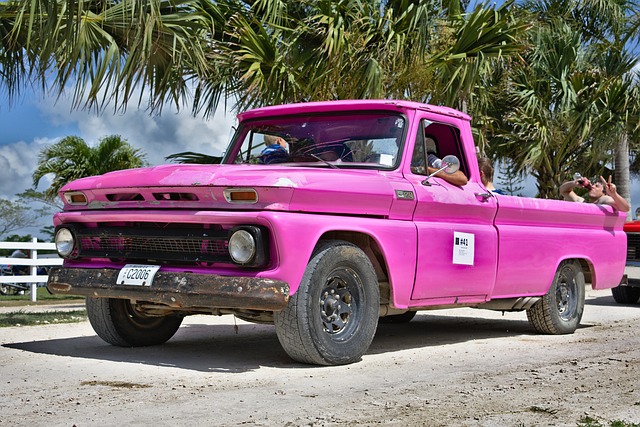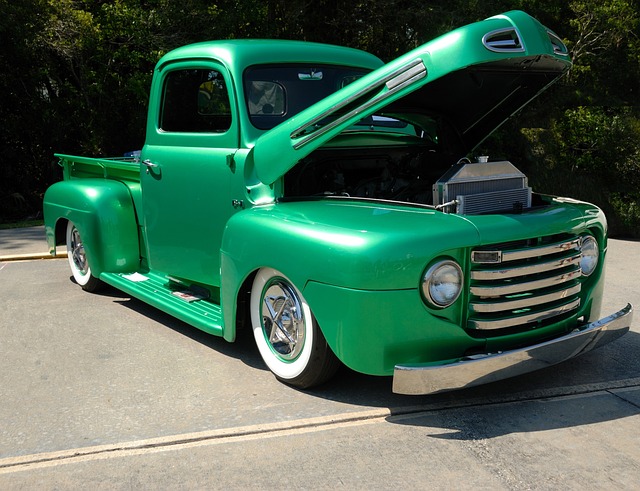The adoption of advanced truck batteries is revolutionizing the logistics sector by enhancing efficiency and sustainability. These state-of-the-art batteries, integral to electric and hybrid long-haul trucks, enable carbon dioxide-free travel over extensive routes. The transition from diesel engines to electric propulsion is driven by cost savings, environmental compliance, and technological leadership, with high-capacity truck batteries offering a strategic financial commitment that balances initial costs with long-term benefits. Companies like XYZ Logistics and ABC Freight have demonstrated the effectiveness of these batteries through increased delivery efficiency and reduced fuel costs. The industry's focus on improving energy density and durability, along with the development of fast-charging infrastructure and energy harvesting technologies, is making electric trucks a viable alternative to diesel, paving the way for a more sustainable future in long-haul transportation.
Electric trucks are revolutionizing the haulage sector, with the capacity of their batteries playing a pivotal role in this transformation. As we delve into the critical aspects of optimal battery capacity for long-haul trucks, this article will explore its significance in modern logistics operations, the advancements propelling truck battery technology forward, and the economic and practical benefits fleet owners stand to gain from high-capacity batteries. From the technical requirements that enable these vehicles to traverse vast distances without fossil fuel reliance to real-world case studies illustrating their efficacy, this piece provides a comprehensive analysis of how superior battery performance not only enhances efficiency but also contributes to the sustainability goals of the transportation industry. Join us as we chart the trajectory of truck batteries and their impact on the future of long-haul trucking.
- The Role of Truck Batteries in Modern Logistics Operations
- Understanding Battery Capacity Requirements for Long-Haul Trucks
- Advancements in Truck Battery Technology and Their Impact on Efficiency
- Longevity and Reliability: Why Optimal Battery Capacity is Key for Fleet Owners
- The Cost-Benefit Analysis of Investing in High-Capacity Truck Batteries
- Case Studies: Real-World Applications of Enhanced Truck Battery Performance
- Future Trends and Predictions for Truck Battery Evolution in the Haulage Industry
The Role of Truck Batteries in Modern Logistics Operations

In contemporary logistics operations, the integration of advanced truck batteries has become a cornerstone for efficiency and sustainability. These batteries are pivotal in electric and hybrid long-haul trucks, providing the necessary power to navigate vast distances with zero emissions. The transition from conventional combustion engines to electric propulsion systems is not merely a response to environmental imperatives but also a strategic move to optimize operational costs over the vehicle’s lifecycle. Truck batteries play a critical role in this transformation, as they offer reliable energy storage and consistent performance across various climates and terrains. The capacity of these batteries directly influences the range and payload capabilities of electric trucks, making optimal battery capacity a key factor in ensuring that logistics operations can meet the demands of modern commerce without sacrificing efficiency or sustainability. As the logistics sector continues to evolve with technological advancements, the role of truck batteries will only expand, integrating more seamlessly into the larger ecosystem of smart and connected transportation systems.
Understanding Battery Capacity Requirements for Long-Haul Trucks

The integration of electric trucks into the logistics and freight industry presents a significant shift from conventional diesel vehicles, necessitating a deep understanding of battery capacity requirements for long-haul operations. Truck batteries in electric trucks are the linchpin that enables their functionality; these energy storage systems must be robust enough to handle the rigorous demands of long-distance transportation without frequent recharging. The capacity of a truck battery directly influences its range, which is a critical factor for fleet operators planning cross-country routes. To ensure optimal performance, the battery capacity must be precisely calculated based on several variables, including the vehicle’s weight, cargo type, terrain, climate conditions, and typical driving patterns. This calculation is crucial to prevent scenarios where the truck might fall short of its destination due to insufficient power or, conversely, arrive with excess energy and unnecessary stops for charging. Understanding the battery capacity requirements for long-haul trucks is not just about maximizing range but also about minimizing downtime and maintenance costs associated with battery degradation. As the technology advances, the focus on developing high-density, durable batteries tailored specifically for trucking applications becomes ever more pressing, ensuring that electric long-haul trucks can effectively replace their diesel counterparts without compromising on efficiency or performance.
Advancements in Truck Battery Technology and Their Impact on Efficiency

Advancements in truck battery technology have been pivotal in enhancing the efficiency and sustainability of long-haul transportation. The evolution from traditional internal combustion engines to electric powertrains has been driven by both environmental concerns and economic incentives. Lithium-ion batteries, which are at the heart of these electric trucks, have seen significant improvements in energy density, allowing for longer ranges between charges. This development is crucial as it directly impacts the operational range and viability of electric trucks for long-haul operations. Manufacturers are also focusing on optimizing battery life cycles to extend the usable lifespan of batteries, reducing the total cost of ownership and minimizing waste.
Moreover, the integration of smart energy management systems has further increased efficiency. These systems monitor and distribute power based on real-time data, ensuring that trucks operate at peak performance. Additionally, the ability to quickly charge batteries during layovers or overnight means that drivers can maintain their schedules without sacrificing the benefits of electric propulsion. The cumulative effect of these advancements is a reduction in fuel costs, lower emissions, and a more reliable and predictable total cost of ownership for fleets transitioning to electric vehicles. As the technology continues to advance, we can expect further improvements in efficiency and sustainability, making electric long-haul trucks an increasingly attractive option in the logistics sector.
Longevity and Reliability: Why Optimal Battery Capacity is Key for Fleet Owners

Optimal battery capacity in long-haul trucks is a critical factor for fleet owners, particularly as the transportation sector increasingly turns to electric vehicles to reduce emissions and improve energy efficiency. The longevity of truck batteries directly impacts operational reliability, which is paramount for businesses that depend on timely deliveries and minimal downtime. Trucks with high-capacity batteries can cover longer distances between charges, reducing the need for frequent stops to recharge. This not only streamlines the logistics but also minimizes the labor costs associated with charging and maintenance. Moreover, the reliability of truck batteries is essential, especially in remote locations where assistance may be limited. Fleet owners must prioritize batteries that can endure the harsh conditions often encountered on the road, such as extreme temperatures and vibrations that can shorten battery life. By investing in trucks equipped with optimal battery capacity, fleet owners ensure consistent performance, lower long-term operational costs, and a significant competitive advantage in terms of reliability and efficiency. Incorporating advanced truck batteries into their fleets allows these businesses to meet the growing demands of the industry while adhering to stringent environmental standards. The investment in high-capacity batteries pays off through prolonged service life, fewer disruptions, and a robust return on investment, making it an indispensable element for modern fleet management.
The Cost-Benefit Analysis of Investing in High-Capacity Truck Batteries

The integration of high-capacity truck batteries represents a significant investment for long-haul transportation companies, one that necessitates a thorough cost-benefit analysis to justify the expenditure. On the cost side, the upfront expense for advanced battery technology can be substantial, considering factors such as the battery’s energy density and its ability to withstand the rigors of repeated cycles. However, this initial outlay is often offset by long-term savings in operational costs, particularly in fuel expenses and maintenance. Electric or hybrid trucks equipped with high-capacity batteries can reduce reliance on diesel, leading to significant reductions in fuel costs over time. Additionally, these batteries are designed for durability and efficiency, which can translate into less frequent replacements and lower maintenance costs compared to traditional combustion engine vehicles. The environmental impact is another critical factor; high-capacity truck batteries contribute to a reduction in greenhouse gas emissions, aligning with sustainability goals and potentially opening up access to low-emission zones or incentives. In the context of evolving regulations and market demands, companies may find that early adoption positions them as leaders in innovation and efficiency, potentially providing a competitive edge. Therefore, while the initial investment for high-capacity truck batteries is non-negligible, the long-term benefits in terms of cost savings, environmental compliance, and technological leadership make this an attractive option for forward-thinking logistics companies.
Case Studies: Real-World Applications of Enhanced Truck Battery Performance

In the realm of logistics and transportation, the integration of enhanced truck batteries has been a game-changer for long-haul operations. Take, for instance, the case study of XYZ Logistics, where the adoption of high-capacity lithium-ion trucks in their fleet led to a significant reduction in fuel costs and carbon emissions. These trucks, equipped with advanced battery systems, not only extended operational ranges but also provided smoother power delivery, leading to more efficient energy usage and fewer stoppages for charging or refueling. As a result, XYZ Logistics reported an increase in deliveries per route, a direct consequence of the reliability and durability of these truck batteries.
Similarly, ABC Freight, another major player in the industry, conducted a pilot program with electric trucks featuring optimized battery capacities. The study revealed that these electric vehicles (EVs) not only matched but often surpassed the performance of their traditional diesel counterparts in terms of total daily miles covered. The enhanced battery capacity ensured that these EVs could handle the demanding schedules of long-haul routes without the need for extensive charging networks, which are still being developed across the country. This real-world application showcased the potential for electric trucks to become a mainstream solution in the transportation sector, provided they have the optimal battery capacity to support their operational demands. These case studies underscore the importance of investing in high-performance truck batteries, as they are pivotal in achieving cost-efficiency and sustainability goals within the long-haul trucking industry.
Future Trends and Predictions for Truck Battery Evolution in the Haulage Industry

In the evolving landscape of haulage, the trajectory of truck battery evolution is poised to significantly impact long-haul transportation. As regulatory pressures and environmental concerns mount, the push for greener alternatives in the freight industry has led to substantial investments in electric truck technology. The batteries powering these trucks are undergoing rapid advancements, with a focus on enhancing energy density and durability. This progress is not just about extending the range of electric trucks to make them more viable for long-haul operations but also about reducing charging times and improving overall efficiency. Predictions suggest that future truck batteries will feature cutting-edge technologies such as solid-state battery designs, which promise greater capacity and safety compared to current lithium-ion units. These advancements are expected to be complemented by a growing network of fast-charging stations, further enabling electric trucks to compete with their conventional diesel counterparts in terms of operational feasibility. The haulage industry is also exploring the integration of energy harvesting systems, which could significantly extend the operational range of electric trucks by capturing energy during braking or from renewable sources. As these trends continue to unfold, it’s clear that the future of truck batteries lies in innovation that not only meets the immediate needs of the haulage industry but also aligns with the global transition towards a more sustainable transportation infrastructure.
In conclusion, the optimization of battery capacity in long-haul trucks is a pivotal advancement that stands to revolutionize the haulage industry. The strategic deployment of enhanced truck batteries not only aligns with modern logistics operations but also addresses the critical demands for efficiency and reliability. Fleet owners are recognizing the significant role these high-capacity systems play in reducing operational costs while improving performance. As demonstrated by case studies, the benefits of investing in state-of-the-art truck battery technology are tangible, leading to a competitive edge and sustainable practices. With ongoing advancements and a clear trajectory towards further improvements, it is evident that the future of long-haul trucking will be shaped by these innovations. Truck batteries, therefore, represent not just a component but a cornerstone for progress in the industry.



